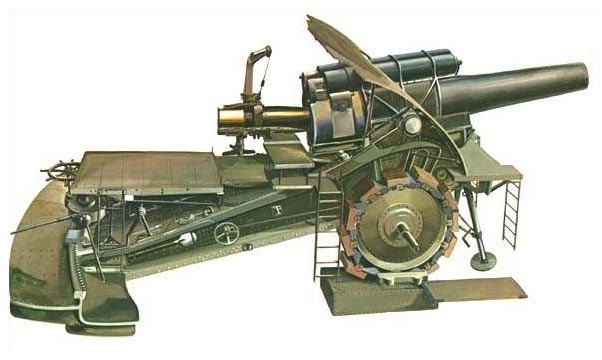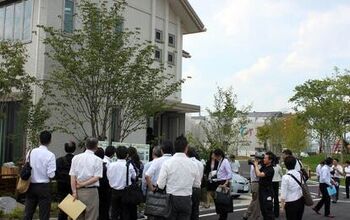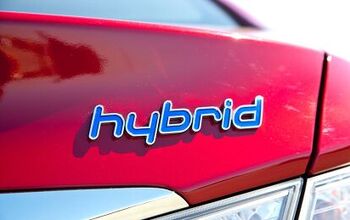Toyota: The Battle Of The Papers

The Toyota case is heading towards hearings in DC and to courts all over the country. Both sides are putting heavy artillery in position. Both sides of the SUA wars commission heavy caliber studies – both with inconclusive results. Toyota funded a study into the electronics in its vehicles. Before that, a group of lawyers had “sponsored” Safety Research and Strategies, a company that makes money by investigating auto-safety for those suing auto makers. Ford, which had been at the receiving end of an SRS fusillade during the Explorer crisis, called the company “supposed safety advocates who are actually just shills for trial attorneys.”
Here are the latest dispatches from the front lines:
SRS produced a Big Bertha of a 180 page research report, that can be downloaded here (if your Internet connection is up to it – I’m on one of Tokyo’s finest 50 Mbit connections, and I’m still waiting… ah, download completed.) The conclusion of the monster is that “sticking accelerator pedals do not appear to cause the SUA events,” and that basically nobody knows what the reason may be. SRS is pointing fingers at the drive-by-wire system, which they call – duh – “significantly different and more complex than the older, mechanical systems.”
The computer gremlin theory “taps into our almost instinctual fear that our machines will suddenly turn on us,” writes Popular Mechanics. “To judge by press accounts and statements from government officials, those innocuous-looking Toyota sedans and SUVs in millions of American driveways are somehow kin to the homicidal ’58 Plymouth Fury in the Stephen King novel “Christine”—haunted by technological poltergeists and prone to fits of mechanical mayhem.” Primordial fear at its finest.
Washington quickly took advantage of the automotive angst. The U.S. House Committee on Oversight and Government Reform lobbed a heavy caliber staff memo that says: “Attention is now being focused on the electronic throttle control system (ETC) to determine whether sudden acceleration may be attributable to a software design problem or perhaps to electromagnetic interference.”
To provide counter-battery fire, Toyota hired the engineering research firm Exponent of Menlo Park, CA, to dig into its computers. Exponent found ”no evidence of problems in the electronics in Toyota and Lexus products,” says their study, that somehow found its way (guess how) to the Wall Street Journal.
Exponent bought six Toyota and Lexus vehicles, all equipped with the electronic throttle-control system. Then they threw all kinds of tests and stresses at the cars. When failures were induced in these sensors, Exponent says the electronic control module detected the problem and took appropriate action.
“Imposing these perturbations resulted in a significant drop in power rather than an increase,” Exponent says in the study. “In all cases, when a fault was imposed, the vehicle entered a fail-safe mode.”
So basically, instead of accelerating like a banshee, the cars on which Exponent performed a vivisection went in to limp mode, just good enough to crawl back to the next Toyota dealer.
Exponent is not finished with their investigation. “Testing and analysis by Exponent will continue for several months,” says the WSJ. So will the trench warfare. Armies of lawyers will record record amounts of billable hours, while the arms merchants of this war will deforest the earth to produce huge amounts of paper.

Bertel Schmitt comes back to journalism after taking a 35 year break in advertising and marketing. He ran and owned advertising agencies in Duesseldorf, Germany, and New York City. Volkswagen A.G. was Bertel's most important corporate account. Schmitt's advertising and marketing career touched many corners of the industry with a special focus on automotive products and services. Since 2004, he lives in Japan and China with his wife <a href="http://www.tomokoandbertel.com"> Tomoko </a>. Bertel Schmitt is a founding board member of the <a href="http://www.offshoresuperseries.com"> Offshore Super Series </a>, an American offshore powerboat racing organization. He is co-owner of the racing team Typhoon.
More by Bertel Schmitt
Latest Car Reviews
Read moreLatest Product Reviews
Read moreRecent Comments
- Dave M. My sweet spot is $40k (loaded) with 450 mile range.
- Master Baiter Mass adoption of EVs will require:[list=1][*]400 miles of legitimate range at 80 MPH at 100°F with the AC on, or at -10°F with the cabin heated to 72°F. [/*][*]Wide availability of 500+ kW fast chargers that are working and available even on busy holidays, along interstates where people drive on road trips. [/*][*]Wide availability of level 2 chargers at apartments and on-street in urban settings where people park on the street. [/*][*]Comparable purchase price to ICE vehicle. [/*][/list=1]
- Master Baiter Another bro-dozer soon to be terrorizing suburban streets near you...
- Wolfwagen NO. Im not looking to own an EV until:1. Charge times from 25% - 100% are equal to what it takes to fill up an ICE vehicle and 2. until the USA proves we have enough power supply so as not to risk the entire grid going down when millions of people come home from work and plug their vehicles in the middle of a heat wave with feel-like temps over 100.
- Kwik_Shift_Pro4X Where's the mpg?


































Comments
Join the conversation
If one report says it isn't the pedals, and suggests the ECU, why doesn't Toyota also proof that it IS the pedals and not the ECU. It seems like they went over the ECU with test and didn't find any faults. But, with the testing they were doing, you wouldn't really expect them too either. I mean, if they knew already how to break it, they would have hopefully issued a recall to fix it. Not saying it is the ECU, not saying it isn't. But why didn't Toyota try to proof it was the pedals?
I wouldn't spend too much time worrying about Biller. He sounds pretty kooky to me, however talented a lawyer he might be. Biller, who said he worked at Toyota from 2003 to 2007, received a $3.7 million settlement in September 2007 for wrongful discharge, according to court filings. Biller said in his civil racketeering complaint filed July 24 in federal court in Los Angeles that he became mentally ill on the job and continues to suffer from depression and post-traumatic stress.